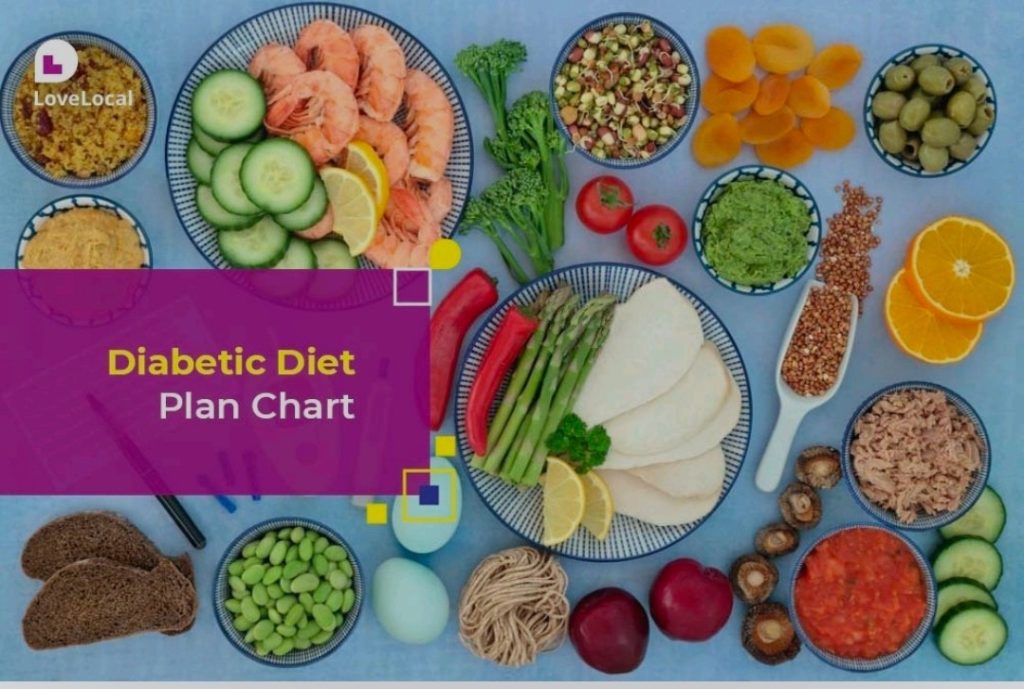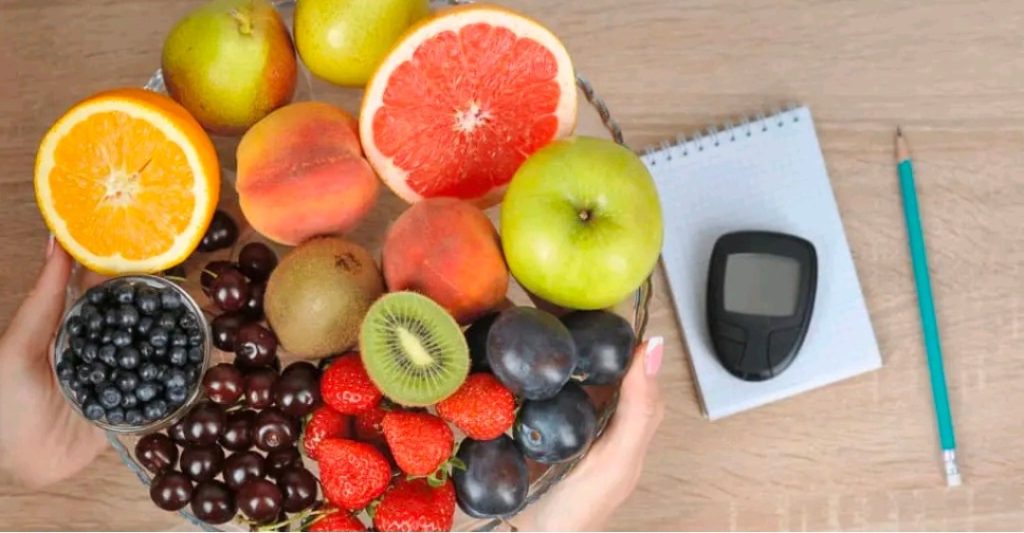A Comprehensive Guide to a Diabetic Diet: Managing Blood Sugar for a Healthier Life
Diabetes is a chronic condition that affects millions of people around the world. It occurs when the body either doesn’t produce enough insulin or doesn’t use insulin efficiently, leading to elevated blood sugar levels. A key aspect of managing diabetes is maintaining a healthy diet. For individuals with diabetes, a carefully planned diet can help regulate blood sugar levels, prevent complications, and promote overall well-being. In this blog, we will explore the essentials of a diabetic diet, what foods to eat, what to avoid, and how to structure meals to ensure a balanced and healthy lifestyle.
Understanding Diabetes and the Importance of Diet
Diabetes is classified into two main types: Type 1 and Type 2. In Type 1 diabetes, the pancreas doesn’t produce insulin, a hormone that helps regulate blood glucose. Type 2 diabetes, the more common form, occurs when the body becomes resistant to insulin or doesn’t produce enough of it.
Regardless of the type, the management of diabetes largely hinges on controlling blood sugar levels. An essential component of this control is diet. What you eat directly affects your blood glucose levels, and understanding how food impacts your body is crucial for managing diabetes effectively. A well-structured diabetic diet can help:
Maintain blood sugar levels within the target range.
Reduce the risk of heart disease and other complications.
Manage weight effectively.
Improve energy levels and overall quality of life.
Key Components of a Diabetic Diet
1. Carbohydrates: Quality Over Quantity
Carbohydrates have the most immediate impact on blood sugar levels because they are broken down into glucose. However, not all carbs are created equal. Simple carbohydrates, such as sugary snacks and processed foods, cause quick spikes in blood sugar. On the other hand, complex carbohydrates, like whole grains, vegetables, and legumes, provide a steady, slow release of glucose, which is beneficial for blood sugar control.

Recommended Sources of Carbohydrates:
Whole grains (brown rice, quinoa, barley)
Vegetables (especially non-starchy varieties like broccoli, spinach, and peppers)
Legumes (beans, lentils, chickpeas)
Fruits (berries, apples, oranges)
Carbohydrates to Avoid:
Sugary snacks (cakes, cookies, candy)
Refined grains (white bread, pastries)
Sugary drinks (soda, sweetened coffee drinks)
Monitoring carbohydrate intake is essential for maintaining stable blood sugar levels. Counting carbs or using the glycemic index (GI), which ranks foods based on how they affect blood sugar, can help diabetics make informed dietary choices.
2. Fiber: The Unsung Hero
Fiber, a type of carbohydrate that the body cannot digest, plays a crucial role in a diabetic diet. High-fiber foods help control blood sugar levels by slowing down the absorption of sugar into the bloodstream. Additionally, fiber promotes healthy digestion and helps maintain a feeling of fullness, which can aid in weight management.
High-Fiber Foods:
Vegetables (leafy greens, carrots, peas)
Fruits (berries, pears, apples with skin)
Whole grains (oats, brown rice, whole wheat)
Legumes (lentils, beans)
The goal for most adults is to consume at least 25-30 grams of fiber daily, though this can vary based on individual needs.

3. Proteins: Building Blocks Without the Sugar Spike
Protein has minimal effect on blood sugar levels and is a critical component of a balanced diet for people with diabetes. It provides energy, supports muscle repair, and can help regulate hunger. However, the type of protein you consume is essential.
Lean Protein Sources:
Chicken and turkey (skinless)
Fish (especially fatty fish like salmon, which is high in omega-3 fatty acids)
Tofu and tempeh
Legumes and beans
Low-fat dairy products (Greek yogurt, cottage cheese)
Avoid high-fat and processed meats like bacon, sausage, and fried foods, as they can increase the risk of heart disease, which people with diabetes are already prone to.
4. Fats: Choose Wisely
Fats are an essential nutrient, but their type and quantity can significantly impact health, especially for diabetics. Unsaturated fats (monounsaturated and polyunsaturated) are considered heart-healthy fats that can improve cholesterol levels and reduce inflammation. In contrast, saturated and trans fats can increase the risk of heart disease.
Healthy Fat Sources:
Avocados
Nuts and seeds (almonds, flaxseeds, chia seeds)
Olive oil and other plant-based oils (canola, flaxseed oil)
Fatty fish (salmon, mackerel, sardines)
Fats to Limit:
Butter and lard
Processed snacks with trans fats (commercial baked goods, fried foods)
High-fat dairy (full-fat cheese, cream)
Including healthy fats in a diabetic diet can promote satiety and heart health without spiking blood sugar levels.
Structuring Meals for Blood Sugar Control
The way you structure your meals can have a significant impact on blood sugar levels. Consistency and portion control are key to managing diabetes.

1. The Plate Method
One simple way to structure a diabetic-friendly meal is to use the plate method:
Half of your plate should be filled with non-starchy vegetables (like spinach, carrots, or broccoli).
One-quarter of the plate should contain lean protein (such as grilled chicken, tofu, or fish).
The remaining quarter should be reserved for whole grains or starchy vegetables (like quinoa, brown rice, or sweet potatoes).
This method helps ensure a balanced intake of nutrients and controls portions.
2. Timing of Meals
Eating meals at regular intervals can prevent blood sugar spikes and dips. Aim for three meals a day with healthy snacks in between, if necessary. Avoid skipping meals, as this can cause low blood sugar levels, leading to overeating later in the day.
3. Portion Control
Portion sizes play a critical role in managing blood sugar levels. Even healthy foods can lead to high blood sugar if eaten in large amounts. Measuring food portions or using smaller plates can help control intake.
Foods and Drinks to Avoid
For individuals with diabetes, some foods and drinks should be limited or avoided entirely due to their effect on blood sugar and overall health.
Sugary Beverages: Sodas, sweetened teas, and energy drinks can cause rapid blood sugar spikes and should be avoided. Instead, opt for water, unsweetened tea, or black coffee.
Processed Foods: Packaged snacks, fast foods, and processed meats often contain unhealthy fats, refined sugars, and excess sodium, which can negatively impact blood sugar and heart health.
High-Sugar Foods: Desserts like cakes, pies, and candy should be limited due to their high sugar content and lack of nutritional value.
Alcohol: If consumed, alcohol should be limited and only in moderation. It can cause unpredictable changes in blood sugar levels, especially if taken without food.
Managing Diabetes with a Healthy Lifestyle
While diet is essential in managing diabetes, it works best when combined with other healthy lifestyle choices.

1. Exercise Regularly
Physical activity helps the body use insulin more effectively and can lower blood sugar levels. Aim for at least 150 minutes of moderate exercise, such as walking or swimming, each week. Strength training exercises twice a week can also be beneficial for building muscle and improving insulin sensitivity.
2. Monitor Blood Sugar Levels
Regular monitoring of blood glucose levels helps you understand how different foods and activities impact your body. Use this information to adjust your diet and lifestyle as necessary.
3. Stay Hydrated
Drinking plenty of water helps prevent dehydration and supports kidney function, which is essential for diabetics, as high blood sugar levels can increase the risk of kidney damage.
4. Get Adequate Sleep
Lack of sleep can affect blood sugar levels and increase insulin resistance. Aim for 7-8 hours of quality sleep each night to support overall health.
Conclusion
Managing diabetes doesn’t have to mean giving up all your favorite foods or feeling deprived. By making informed choices and following a balanced, nutrient-rich diet, you can effectively manage your blood sugar levels, reduce the risk of complications, and enjoy a healthy, active life. A diabetic diet is about moderation, balance, and choosing the right foods that nourish your body while keeping blood sugar levels in check. With the right approach, you can take control of your diabetes and lead a fulfilling, healthy life.



